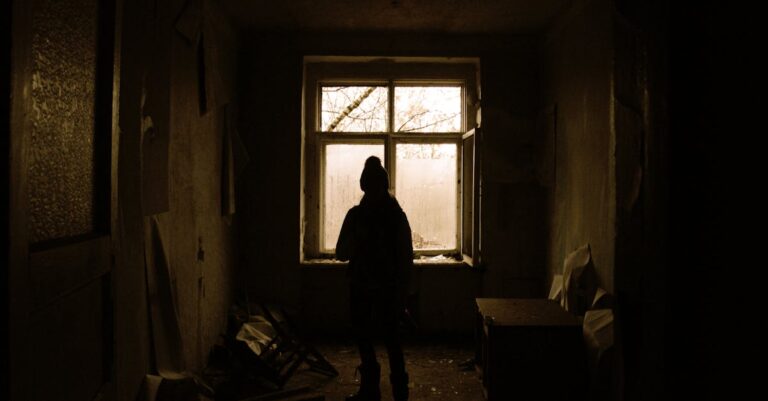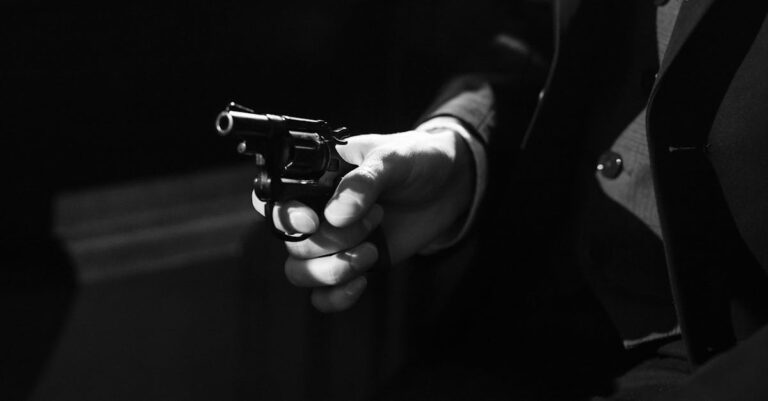
Lila’s boots crunched over gravel as she stepped off the bus, the weight of her duffel bag digging into her shoulder. The town of Blackthorn sat in a bowl of pines, its rooftops hunched like old men staring at the sky. She’d never seen a place so still. Even the air felt thick, as if the trees held their breath. Her mother’s letter had said, *“It’s safer here,”* but Lila didn’t believe in safety. Not after the fire. Not after the silence.
The boardinghouse owner, a woman with a voice like gravel, handed her a key and pointed to a room above the laundromat. “You’ll be fine,” she said, though her eyes lingered on Lila’s suitcase, as if expecting something to spill out. The room smelled of mildew and old wood. Lila unpacked quickly, tossing her clothes into a closet that reeked of lavender and decay. Outside, the sun dipped low, casting jagged shadows across the floor.
That night, she heard the bell. Not the church bell—too faint, too irregular. It rang once, then again, a hollow sound that made her stomach tighten. She stepped onto the porch, barefoot, and scanned the dark. The pines swayed, their branches clawing at the moon. Then she saw it: a flicker of light in the woods, far beyond the town’s edge. It pulsed, steady as a heartbeat.
The next morning, Lila found a map in her room—torn paper, ink smudged by rain. A path marked in red led to a place called the Hollow Veil, a name that made her throat ache with familiarity. She asked the owner about it, but the woman’s face went blank. “Don’t know no such place,” she said, turning back to her knitting. Lila didn’t believe her.
At noon, she followed the map. The woods were different here—thicker, older. The air smelled of damp earth and something sweet, like rotting fruit. She stumbled over roots, her jeans snagging on thorns. Then the trees thinned, and she saw it: a clearing ringed with stones, each carved with symbols she didn’t recognize. In the center stood a woman, her back to Lila, arms raised as if in prayer. The light from the sky seemed to bend around her, casting her in gold.
“You shouldn’t be here,” the woman said without turning. Her voice was calm, but Lila felt it in her bones. “This place isn’t for outsiders.”
“I’m not an outsider,” Lila said, though the words felt false. The woman turned, and Lila’s breath caught. She had eyes like polished obsidian, and her skin was pale as bone. “You’re one of them,” the woman said. “The ones who left.”
“What does that mean?”
The woman stepped closer, her shadow stretching across the stones. “You’re here because you remember. Even if you don’t want to.” She reached out, fingers brushing Lila’s wrist. A jolt of heat shot through her, and suddenly she saw it: a fire, a crowd, a man with a crown of thorns. The woman’s voice was in her head now, urgent. *“They took what they could. The rest of us… we hid.”*
Lila pulled away, gasping. The woman’s expression softened. “You’ll understand soon enough. But first, you have to choose.”
“Choose what?”
“The veil,” the woman said. “It’s thin here. You can step through, or you can walk away. But once you see what’s on the other side, you’ll never be the same.”
Lila stared at the stones, their edges glowing faintly. She thought of her mother, of the way she’d packed Lila’s things in silence. *“It’s safer here,”* she’d said. But safety had a price. And Lila was tired of paying it.
She stepped forward.


